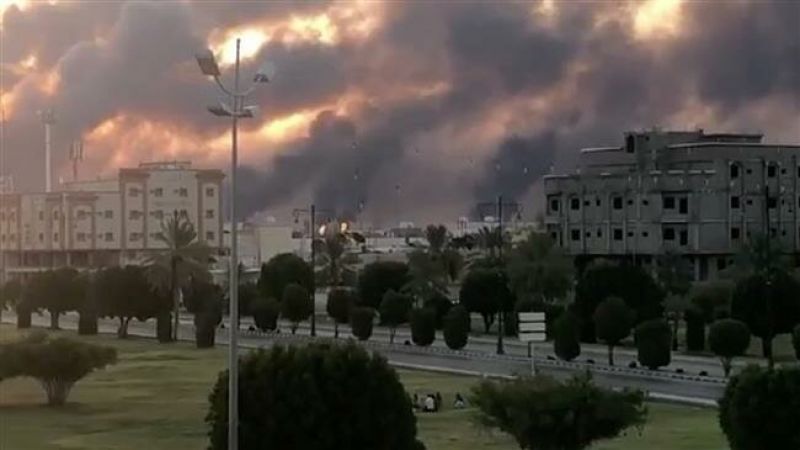
Local Editor
Iran's president says the Yemeni army's recent drone attacks on Saudi oil facilities were merely for legitimate self-defense, and no one can expect them to remain silent when their country is destroyed.
The people of Yemen "have to respond" to the foreign aggression and the influx of US and European weapons to Saudi Arabia and the UAE, President Hassan Rouhani told a briefing held in Ankara on Monday after his trilateral summit with Russian and Turkish counterparts.
"They cannot avoid legitimate defense when their country is being destroyed. What Yemenis do is legitimate self-defense, and reciprocal attack," Rouhani stressed.
His remarks came after Yemen's Ansarullah movement and their allies in the Yemeni army deployed as many as 10 drones to bomb Abqaiq and Khurais oil facilities run by the Saudi state-owned oil company Aramco before dawn Saturday.
The unprecedented attack knocked out more than half of Saudi crude output, or 5% of global supply, prompting Saudi and US officials to claim without any evidence that it probably originated from Iraq or Iran.
Two sources briefed on Aramco's operations told Reuters it might take months for Saudi oil production to return to normal. Earlier estimates had suggested it could take weeks.
In his Monday remarks, Rouhani also called for the end of the Saudi aggression against the Yemeni nation as a principal solution to end the war.
"We believe a political solution is needed to settle the Yemen crisis, and maybe what we witnessed in the Astana Process could be a role model for Yemen, and regional countries would be able to restore peace and security to the region."
The Astana Process is an initiative by Iran, Russia, and Turkey which mediate peace negotiations between representatives from the Syrian government and opposition groups in several rounds held in the Kazakh capital Nur-Sultan (formerly Astana) and other places since January 2017.
Saudi Arabia has been leading a coalition of its vassal states in waging war on Yemen since March 2015 to reinstall former president Abd Rabbuh Mansour Hadi, who resigned from presidency and fled to Riyadh in January 2015 amid popular outcry over corruption and mismanagement of the economy. Houthi Ansarullah fighters then took over state matters to prevent the country from descending into chaos.
The US-based Armed Conflict Location and Event Data Project (ACLED), a nonprofit conflict-research organization, estimates that the Saudi-led war has claimed the lives of over 60,000 Yemenis since January 2016.
The war has taken a heavy toll on the country’s infrastructure, destroying hospitals, schools, and factories. The UN says over 24 million Yemenis are in dire need of humanitarian aid, including 10 million suffering from extreme levels of hunger.
Source: News Agencies, Edited by Website Team